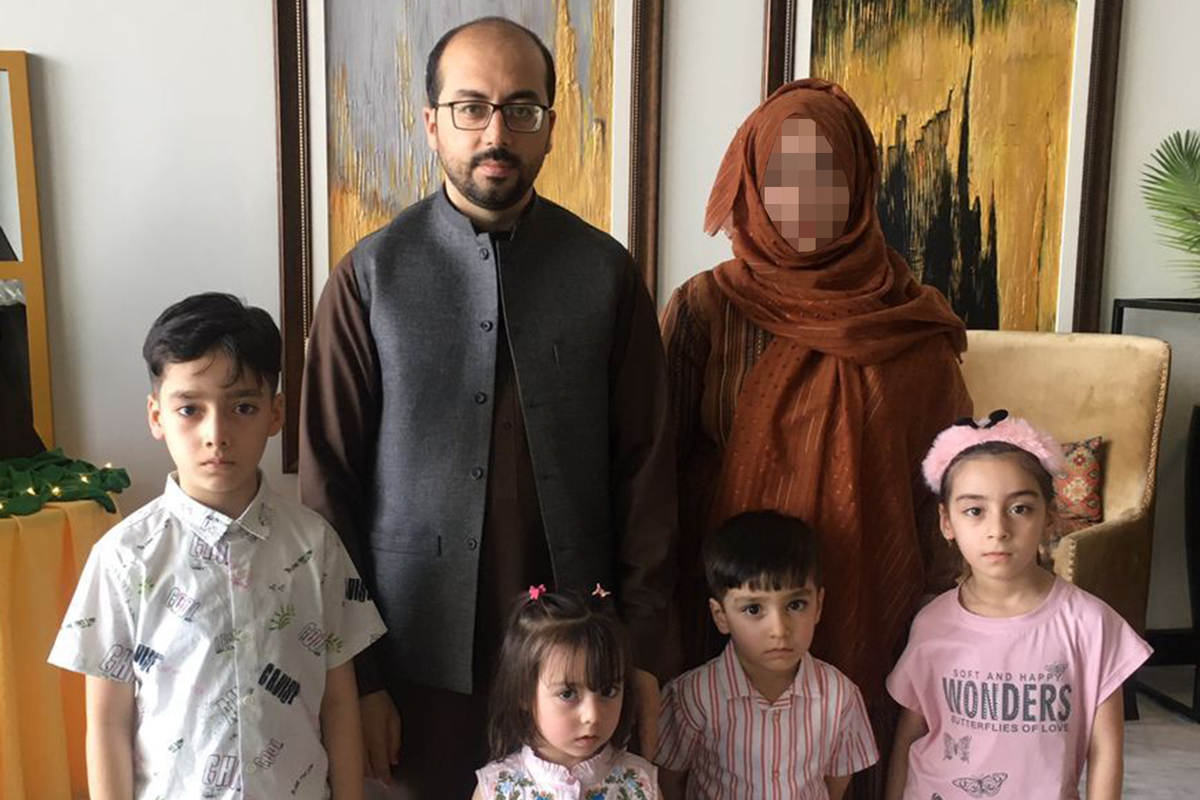
An Afghan refugee who fled Kabul under the promise of being given safe haven in Britain faces being sent back to the Taliban after the government admitted it had housed him for 19 months in error.
Mohammad Zaker Nasery has spent over a year living in a UK-funded hotel in Pakistan awaiting approval to come to Britain, and even had a UK visa approved. But he has now been given 14 days’ notice to leave the accommodation after being told he is not eligible for the Ministry of Defence’s flagship resettlement scheme.
The father of four, who worked as a contractor on a Foreign Office (FCDO) project between 2019 and 2021, faces destitution in Pakistan or deportation back to Afghanistan after officials told him they were cutting support because it had been given “in error”. More than 30 Afghan families, who are also living in the hotel, have written a letter of support calling on the British High Commission to stop his eviction.
It is the latest in a series of revelations about the government’s beleaguered Afghan resettlement policy, which is facing mounting legal challenges from abandoned claimants. Labour MP Mary Kelly Foy said it was indicative of the “shameful saga of government failures” in supporting Afghans who helped British forces.
Juliette Seibold, who worked as a programme manager at IPE Global, the company contracted by the FCDO in Afghanistan, said the government had “cocked it up”. “They invited him to Pakistan, then they invited his family to Pakistan. They led him down this road of believing that he had a chance and they put him up for months in Islamabad at an eye-watering cost of money. At the end of all this process they’re booting him out. It’s just not fair.”
Mr Nasery had worked as a contractor on an FCDO project to end violence against women and girls in Afghanistan between 2019 and 2021 and other members of his family have been relocated to the UK because of their work with the British.
Mohammad Zaker Nasery with his wife and four children aged 9, 6, 5 and 3.— (Mohammad Nasery)
He messaged his family member’s British High Commission (BHC) caseworker in March 2022, seven months after the fall of Kabul, asking for updates on whether he was eligible to come to the UK as well. He had already applied to come to Britain under the Afghan Relocations and Assistance Policy (Arap) scheme, which is for Afghans who worked with the British forces.
In messages seen by The Independent, the case worker responded by asking if he had a visa to travel from Afghanistan and, when he said he did, said: “Let me know when you planned to travel.” Mr Nasery organised a time to cross the border with Pakistan, informed the case worker and was picked up by a BHC car and driven to a UK-funded hotel in Islamabad.
Mr Nasery stayed in the hotel for 19 months, with his wife and four children joining him some months later. He was even given a UK visa by the Home Office in May 2022, which has now been crossed out, with a big red cross. Afghan families are only meant to travel to the Pakistan hotels and have visas approved after they have had their eligibility for resettlement schemes approved.
His Arap application was turned down in January this year, but he was allowed to stay living in the hotel with his family while the decision was reviewed. In May this year, he was told his resettlement plea had been rejected because he had not worked alongside a UK government department or made a substantive contribution to the UK’s military objectives in Afghanistan.
He then made an application to the UN’s refugee scheme, with the hope of being referred to the UK Home Office for relocation, but has not yet had his second stage interview.
But, in an eviction letter sent earlier this month confirming the withdrawal of support, officials at the British High Commission wrote: “While in third countries, the UK government may provide discretional support including accommodation to applicants who have been assessed as eligible for relocation to the UK under Arap. In error, this support was provided for you.”
Ms Foy, Labour MP for Durham, who had been supporting the case, said: “Mr Nasery’s story is the latest in a shameful saga of government failures to stand with those Afghans who supported British efforts in Afghanistan.
“Since Mr Nasery’s case was brought to my attention by a constituent over a year ago, the government’s responses to his case have been slow, uncoordinated and contradictory, all the while he and his family have been abandoned to an uncertain future.”
Mr Nasery said: “I have been given 14 days to leave the hotel, find my own funds, accommodation and update my visa. Currently I don’t have money to rent a house or feed my family. I am in a stressed and frustrated situation.”
In the letter of support from families, they said Mr Nasery, who speaks English, has been supporting many people in the hotel with translation, adding: “We are aware he has sold all his possessions to fund his wife and kids’ passports and Pakistan visas. Currently he is homeless, destitute and without Pakistan visas.”
“If he is put out in 14 days with his family from the hotel he is at immediate risk of deportation by the Pakistani authorities, because his visas expired a year ago.”
The Home Office and the Foreign Office have been contacted for comment.







